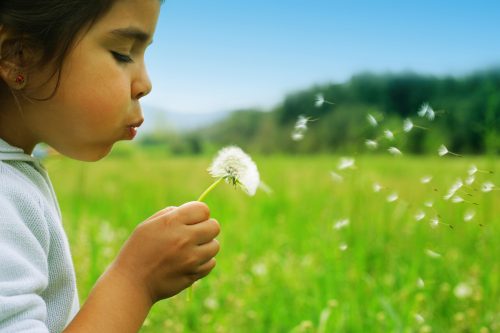
We asked Ronit Ziv-Kreger, Ph.D., a Jewish educator working with children and adults in the Boston area, how to encourage an appreciation for nature in children. Dr. Ziv-Kreger is on the staff of CJP’s adult learning courses, Ikkarim and Me’ah, and serves as Jewish studies and family education consultant to the MetroWest Jewish Day School in Framingham. She also teaches Jewish environment studies for the ADAMAH fellowship at the Isabella Freedman Jewish Retreat Center in Connecticut, and designed and served as the founding director of an award-winning environment studies program in Israel. She’s the mother of three children, ages 8, 10 and 20, and lives in Sharon with her family.
Where in daily Jewish living do we encounter an appreciation for nature?
One of the themes in Jewish living is to live with a sense of wonder. Blessings and prayers are ways that traditional daily practice guides us toward wonder, and the daily psalms are filled with nature and appreciation. Rabbi Nachman of Breslov encouraged people to pray in nature—to take time daily to step away from the stimuli that tug at our consciousness and to allow ourselves time in a field or forest to enter a different mindset. Abraham Joshua Heschel said: “Our goal should be to live life in radical amazement…get up in the morning and look at the world in a way that takes nothing for granted. Everything is phenomenal; everything is incredible; never treat life casually. To be spiritual is to be amazed.”
How can parents start teaching young children about nature appreciation through a Jewish lens?
The first thought that comes to my mind is a blessing that a friend shared with us before our children were born: “Parenting isn’t so much about giving to your children,” he said. “It’s a lot about receiving from them.” As a parent, I can expose my children to nature and assure them free, unstructured time. The rest comes naturally to them, along with my role to receive and learn from them. Even in a city, I remember so many times when I was wanting to get from point A to point B, and my children would stop and look at a butterfly or flower, details that for adults often fall into the background but attract children’s open eyes and curious minds, and trigger enthusiasm. Taking time to join them and explore the wonder with them, and building from an early age the habit of uttering words of appreciation for beauty, and if it’s a fit, to ponder the source of the beauty of nature—just to be in the conversation of giving and receiving insights—is a very Jewish thing to do.
What are some easy tips for incorporating Jewish values and traditions into this education?
The Jewish tradition encourages each person to recite 100 blessings a day! There are blessings in prayers, blessings for eating, for special moments and even a blessing for the functioning of our bodies. With very young children, a parent could coin a term, such as “a wow moment,” for sharing a “wow” with another person, with ourselves or with the source of the wonder. While there’s more to the traditional formulas of Jewish blessings, there’s value in having young children realize that connecting to wonder is part of what Jewish ritual life is meant to guide us toward. Giving children a language that invites them to share wonder with you and to initiate blessings empowers them to share the awe-centered mindset they naturally have.


